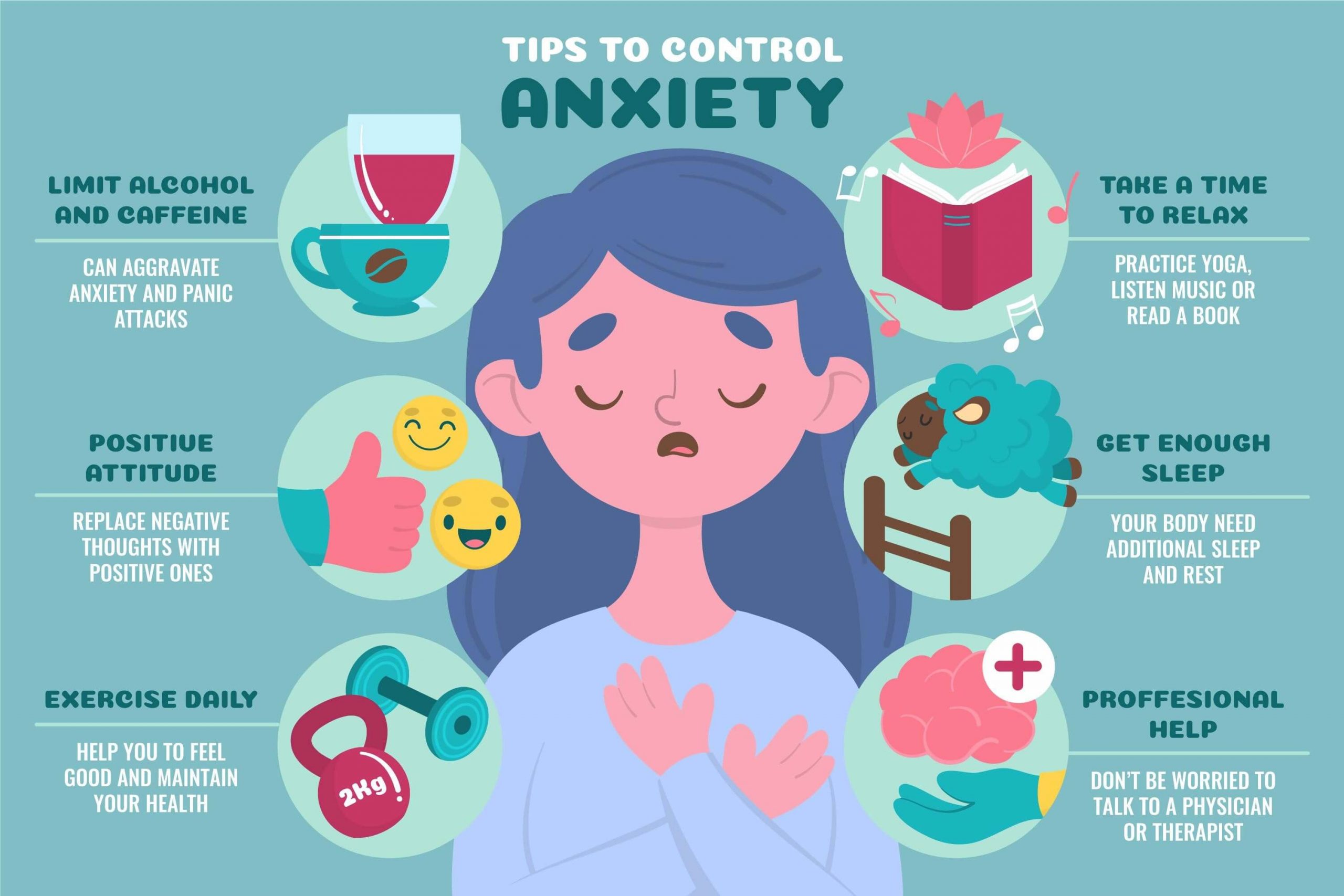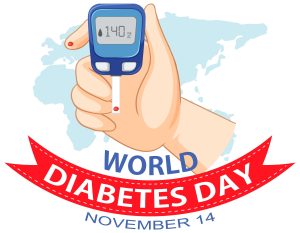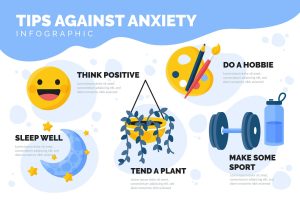Disclaimer:
This article is for information purposes only. It is not a substitute for medical advice or treatment. Seek medical care for your treatment.
Anxiety impacts everyone differently. “Anxiety is your body’s instinctive response to worry and stress.” It is a feeling of fear and foreboding that have mental, emotional and bodily effects. Anxiety can incur negative thoughts causing people to feel uncontrollable. It can also have bodily impacts like perspiration, quivering and breathlessness. For instance your first day at college, giving an exam or giving a job interview can make some people feel uncomfortable and nervous.
Intermittent anxiety is fine but if your feelings of anxiety are recurrent or last for more than 6 months and are persistently intervening in your day to day life, you may have an anxiety disorder. Multiple mental illnesses can cause perennial anxiety and stress. Unrestrained anxieties can aloof you from others by avoiding school, office, get-togethers and other social gatherings that might trigger your symptoms.
- 40 million American adults have an anxiety disorder.
- According to American Psychiatric Association Women are more prone to have an anxiety disorder than man.
- Only 39.6% people look for medical treatment.
Types of Anxiety Disorders
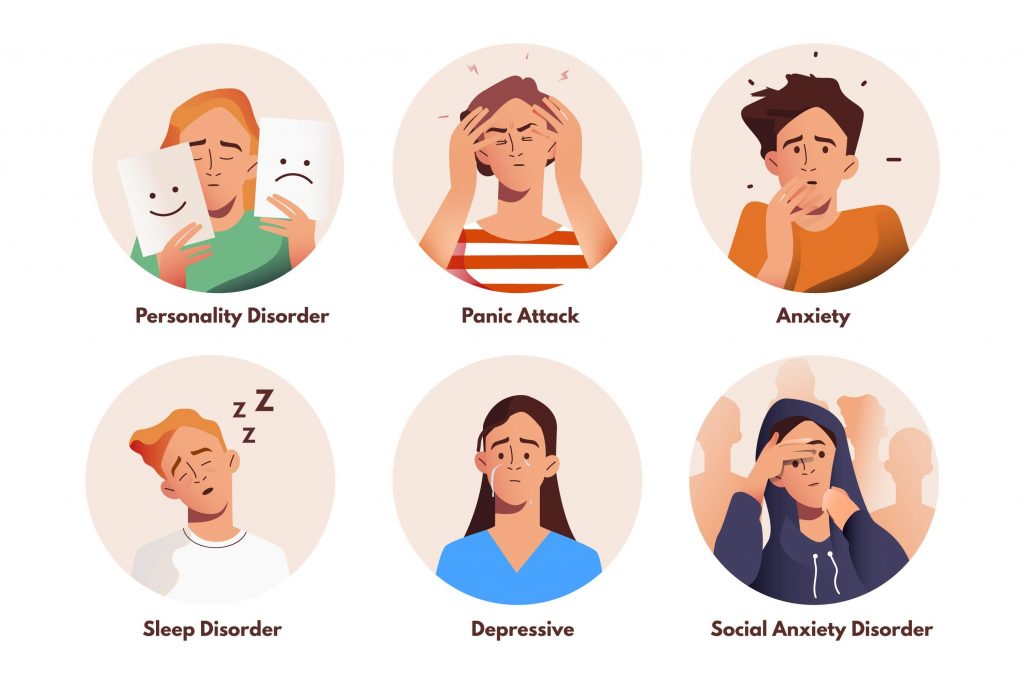
There are various types of anxiety disorders:
- Panic disorder
When you experience an unexpected persistent fear is called a panic disorder. Panic attack may result in sweating, (feel like) choking, palpitations, and chest pain.
- Phobia
Severe fear of a particular activity, situation, place or object is a phobia. For example, you may panic in a crowded place, in an airplane or on a public transport.
- Social anxiety disorder
Social anxiety disorder is also known as social phobia. It is an immense fear of being assessed by others in social situations.
- Separation anxiety disorder
It is a fear of being away from your dear ones. Not only little kids feel edgy when their loved ones are not around but anyone can have this disorder. This disorder petrifies you that anything bad may happen to your dear ones.
- Obsessive compulsive disorder
This means you have frequent unreasonable thoughts that result in same, certain behavior.
- Illness anxiety disorder
This disorder is about your health, also known as hypochondria.
- Generalized anxiety disorder
You experience severe baseless worry for trivial or no reason.
- Selective mutism
This is a social anxiety in kids who are normal around their family but stay quiet in public or school.
Symptoms of anxiety
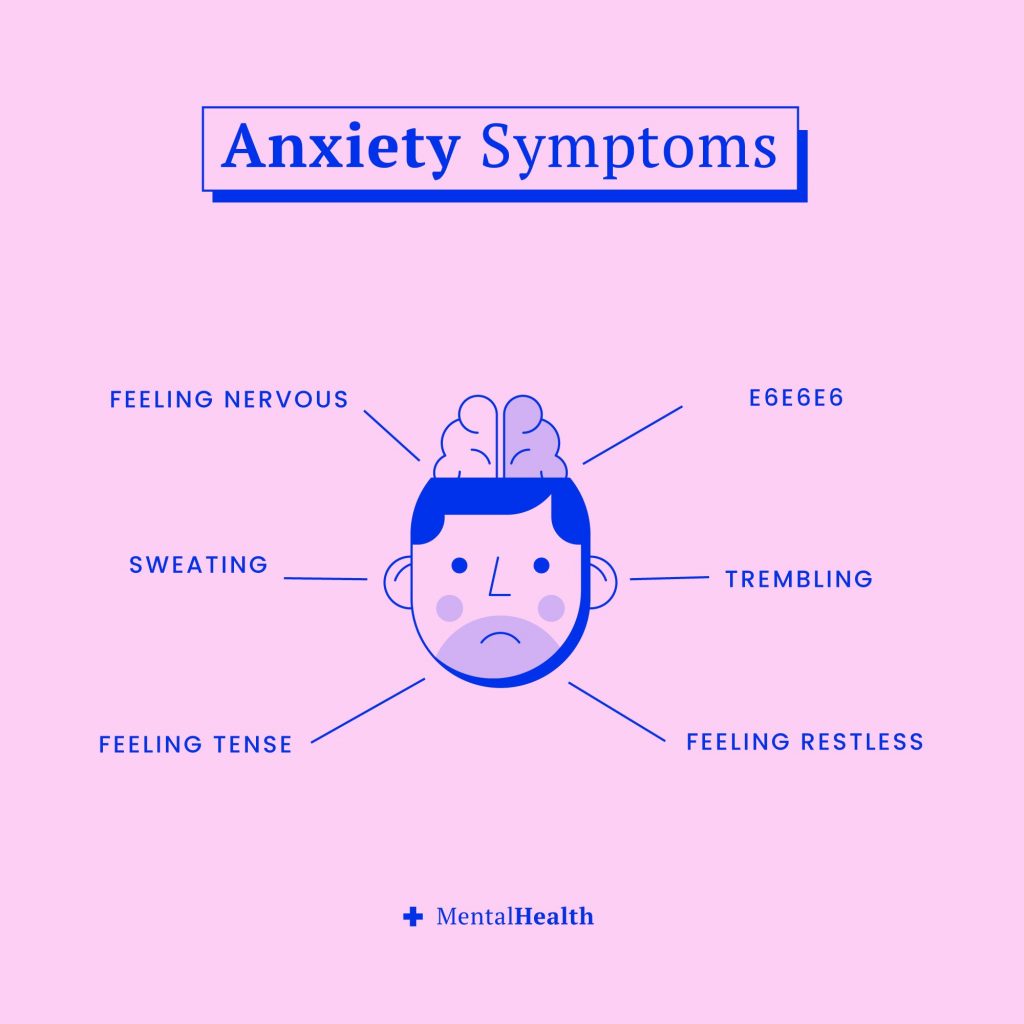
The chief symptom of anxiety is profuse dismay or worry. Anxiety hits everyone differently. Anxiety makes it difficult to sleep, breathe or focus. Any certain place or event may fright the person having anxiety disorder.
General symptoms are as follow:
- Panic, dread or uneasiness
- Feelings of dismay and threat
- Sleeplessness
- Stormy
- Palpitations
- Breathlessness
- Nausea
- Stressed muscles and body aches
- Rumination
- Lack of focus
- Avoiding feared places or people
- Edgy
- Restlessness
- Dry mouth or xerostomia
Causes of anxiety disorder
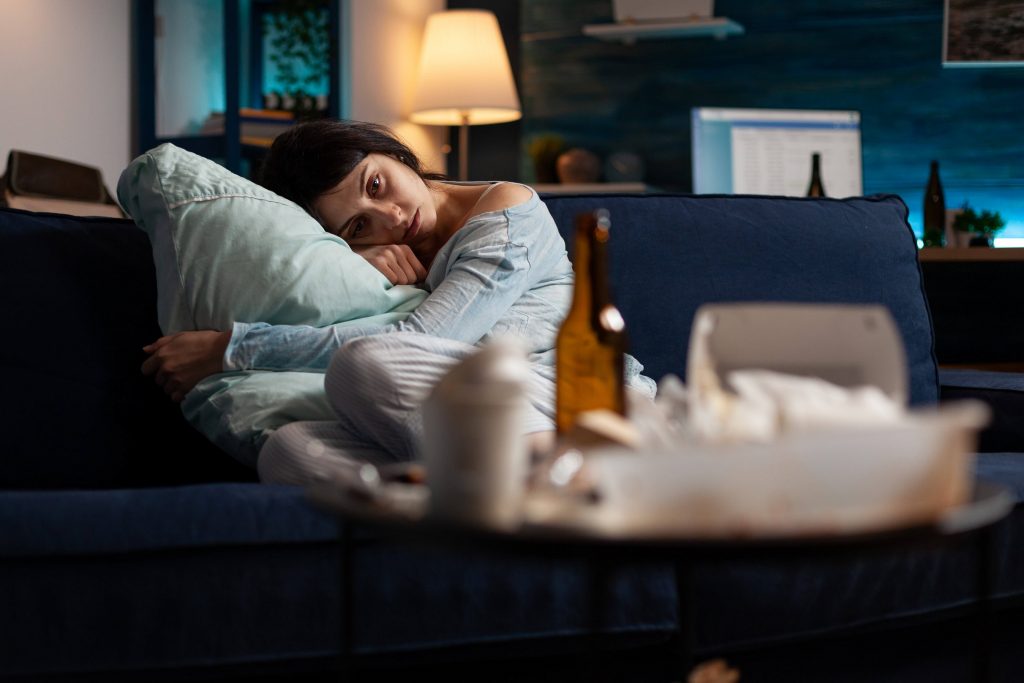
Various causes contribute to anxiety disorder. Some are enlisted below:
- Genes
You are likeable to have this disorder if it already runs in your family.
- Brain
Research recommends that these disorders are the result of defective brain circuits that command fear and sentiments.
- Stressful events
Back to back Stressful events trigger anxiety for instance, losing a loved one, experiencing or witnessing violence, being mistreated or child abuse.
- Misuse of drugs
Several drugs usage may conceal or decrease anxiety symptoms. Alcohol and drugs combination worsens Anxiety disorder.
- Health conditions
Heart, lung, kidney and thyroid conditions can be the cause of anxiety disorders or can create more worsening anxiety disorder symptoms. It is better to get a thorough physical checkup to preclude other medical conditions. Certain medical conditions like diabetes or depression can also trigger anxiety.
Adopt natural remedies to cope with anxiety disorder
If your anxiety is hampering you to perform your everyday tasks then try to adopt these natural ways to overcome anxiety disorder:
1) Stay mentally and physically active
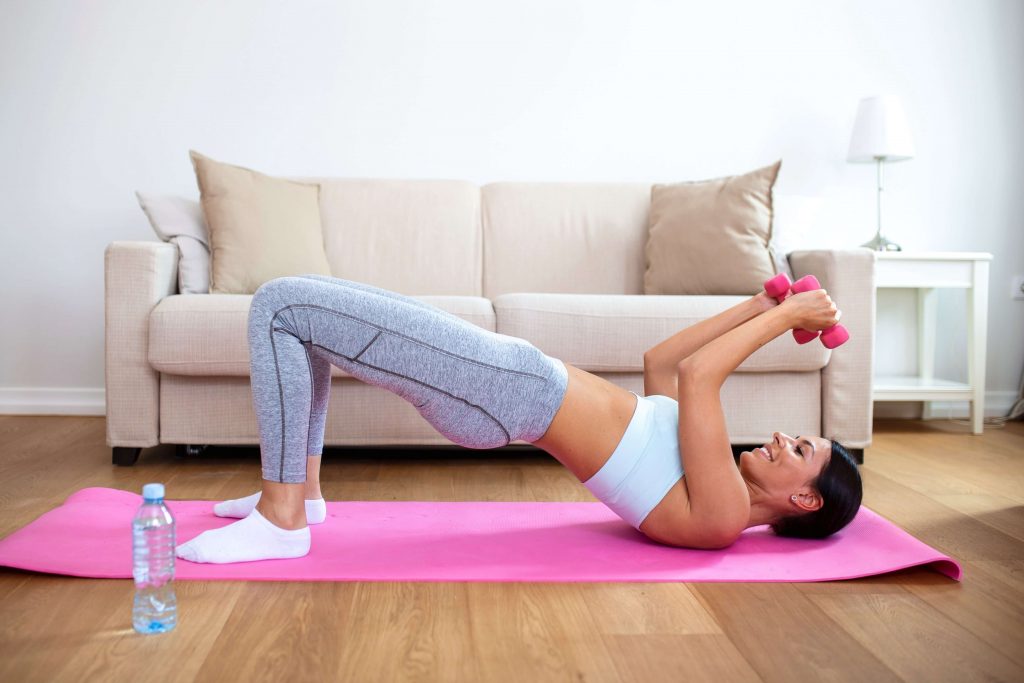
Try to be more active and agile on regular basis. Exercise and walk are great stress busters. They boost your mood and help you stay hale and hearty. Sometimes best way to evade anxiety is to walk away from the tense situation. Start doing exercise or walk for 15 minutes and then gradually enhance the time and intensity, this will uplift your heart and brain health.
2) Breath in and out slowly
With the onset of anxiety try to take a break and try to figure out what is bothering you. Anxiety is about stressing over future or past events. You constantly worry about something bad that future holds for you or rethinking about something which has already taken place keeping you completely unaware about the present. You can simply stave off anxiety by sitting in a cozy position; trying to retrieve all the lost control and focus back to the present.
Go for breathing exercise and mantra. The 4-7-8 technique also reduces anxiety. For 5 minutes in total, Breathe in for 4 counts and breathe out for 4 counts. This will help you relax by slowing down your heart rate. Try these easy steps:
- Sit in a comfortable position
- Shut your eyes
- Slowly inhale and exhale through your nose
- While breathing in and breathing out focus on the word “Be present”
Breathing techniques or exercises are potential anxiety busters and keeps you focused towards the present.
3) Restrict alcohol, caffeine and drugs
Restrict Alcohol, caffeine and nicotine because they can aggravate your anxiety and promote panic attacks. Substance abuse can worsen anxiety. If you are struggling to give up on this, seek health care provider attention or join a group to support you.
4) Get proper sleep
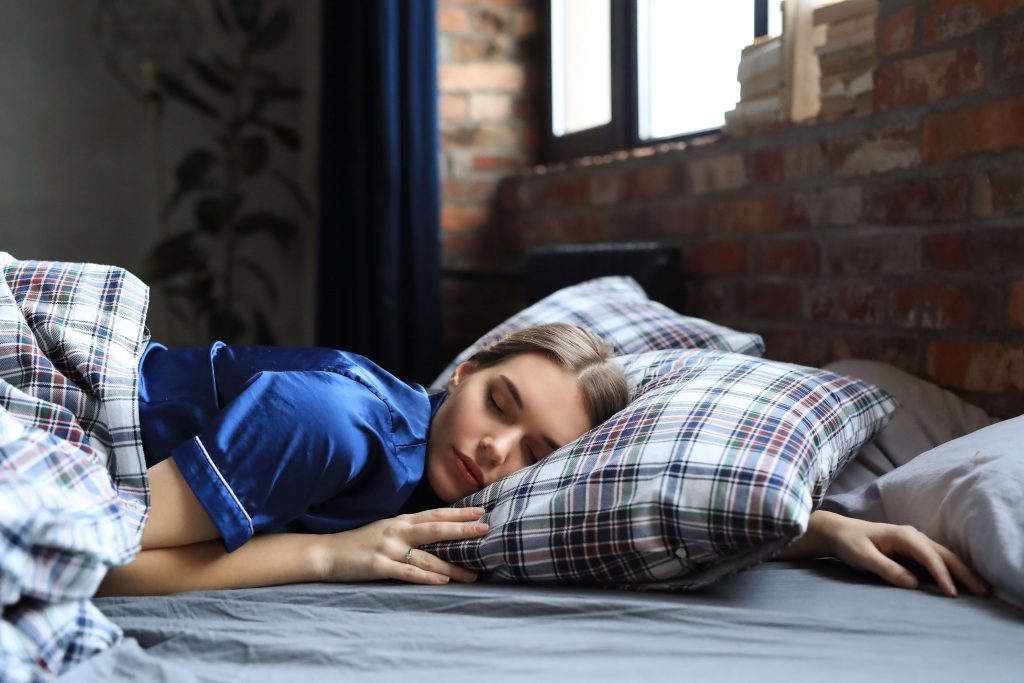
A peaceful sleep is imperative for the health of body and mind. Make sure that you get sufficient sleep. Stressed or anxious body needs more sleep and rest. Sleep deprivation and anxiety go side by side. Follow a good sleep routine. Your body needs more than 7 hours of peaceful sleep. If you have trouble sleeping seek for help from your health care provider.
5) Eat healthy foods
Anxiety can be controlled through therapy and medication but modification in lifestyle can also reduce anxiety. Some researches depict that Healthy foods can benefit your brain. Healthy diet integrates fruit, vegetables, nuts, whole grains and fish. Try not to skip any meal. Munch on healthy, energy boosting snacks. Some foods that help fight anxiety are below:
- Flax and chia seeds
- Fish for instance, mackerel and salmon
- Raw turmeric
- Vitamin D
- Magnesium
- Tryptophan
6) Determine what triggers your anxiety
To stave off anxiety it is necessary to get to the root and determine what’s bothering you. Take out some time and Jot down on a diary what is annoying you; is it school, friends, family or work? This will help you to know the source of anxiety. Identify the situations, actions or people that aggravate your anxiety. Opt for the techniques or strategies that you decided with y+our doctor to ward off anxiety. Sometimes a friend can also help you identify what triggers your anxiety.
7) Ditch negativity
Take stern action before negative thoughts are deep rooted in your mind. To ward off negative thoughts evaluate if they are true and take back charge. Are the residing thoughts in your brain productive? Are these thoughts helping you achieve your goal? Only then you can put a “Stop” to these negative thoughts. Always think positively to fight anxiety. This can be difficult but cognitive behavioral therapy can help you combat negative thoughts.
8) Take supplements

Intake of Certain supplements and nutrients can reduce anxiety. These are:
- Lemon balm
- Omega-3 fatty acids
- Ashwagandha
- Green tea
- Valerian root
- Kava kava
If you are consuming other medicines it is important to discuss with your doctor before taking herbal remedies to avoid any mishap.
1) Medicines for anxiety disorder

Medicines can help control your anxiety. If it is necessary to take medicines then there are certain options. Antidepressants like SSRIs can be effective. Other treatment includes benzodiazepines, like valium, ativan and Xanax separate or in combination with SSRI medication. Because of dependency these drugs are not considered advantageous in long run. Other side effects are dizziness, lack of concentration and irritability. Beta-blockers help to minimize anxiety symptoms like palpitation, shivering and shaking. This helps you calm down in chronic anxiety. Other anti anxiety like buspirone, anticovulsants, antipsychotics and escitalopram, can change your brain chemistry and uplifts your mood by minimizing stress.
Certain treatments are also suggested:
- Psychotherapy
This covers cognitive behavioral therapy and exposure response prevention
- Complemental health techniques
Yoga, meditation, carefulness, stress management and self control are ways to treat your anxiety.
Your therapist and psychologist can assist you to cope with stress and anxiety by adopting various strategies.
The Mental Health Resources page can help you find a capable mental health psychiatrist.
2) Socialize
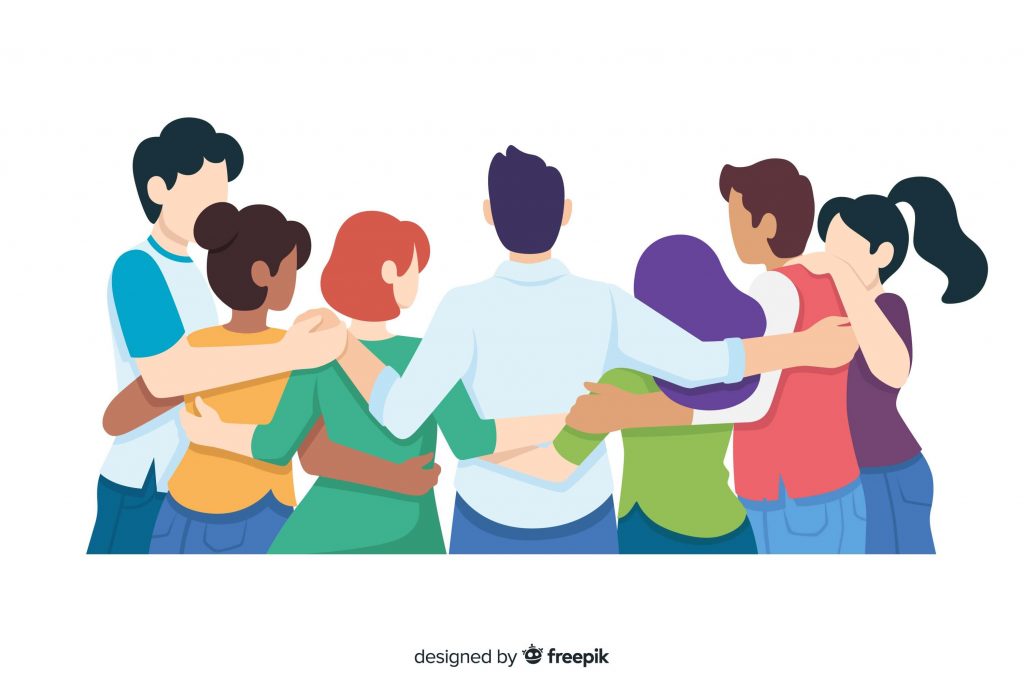
<a href=”https://www.freepik.com/free-vector/flat-youth-people-hugging-together_4741430.htm#query=gathering&position=26&from_view=search”>Image by pikisuperstar</a> on Freepik
Do not let anxiety isolate you. Try to meet with people who love or support you. Try to talk to them in person, on the laptop or on the phone. This will help you to reduce stress and anxiety. Sometimes it is very beneficial to talk to people who are experiencing the same emotions. Try to join some support groups they are therapeutic.
Outlook
It can be frightening and challenging to live with anxiety disorder as you simply fail to live a normal, happy, day to day life. Try the above mention remedies and lifestyle along with professional help. It takes some time to find the correct treatment for you. For some people medication and therapy, both are required but some overcome anxiety by just therapy or medication. Best is to go and meet your mental health provider so that you can live a happy and dauntless life.

